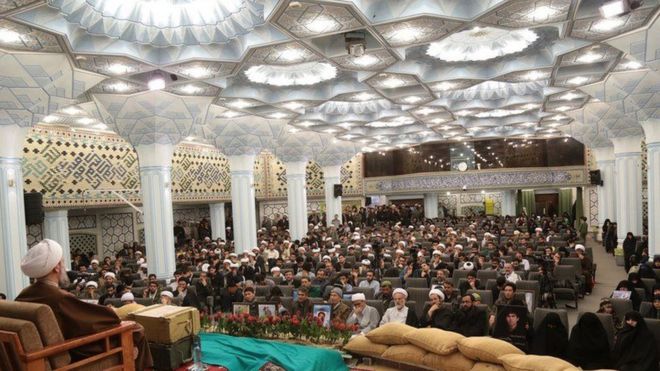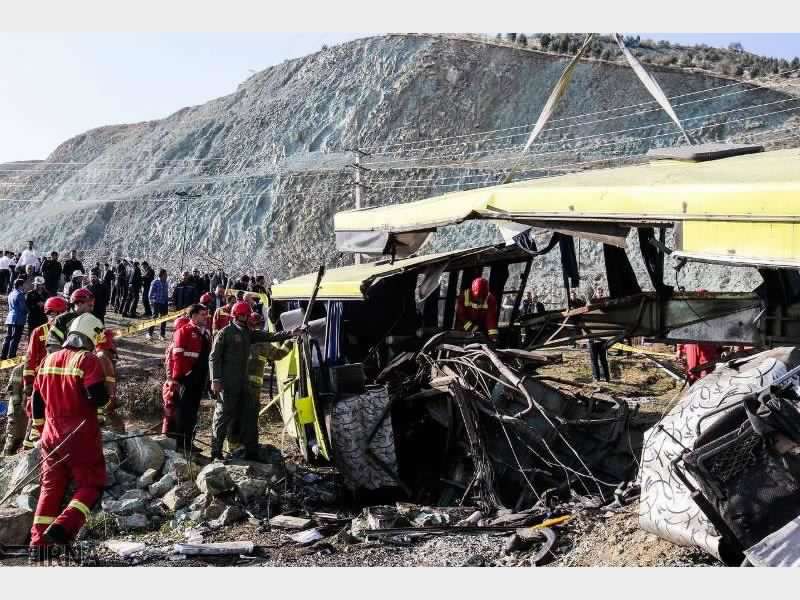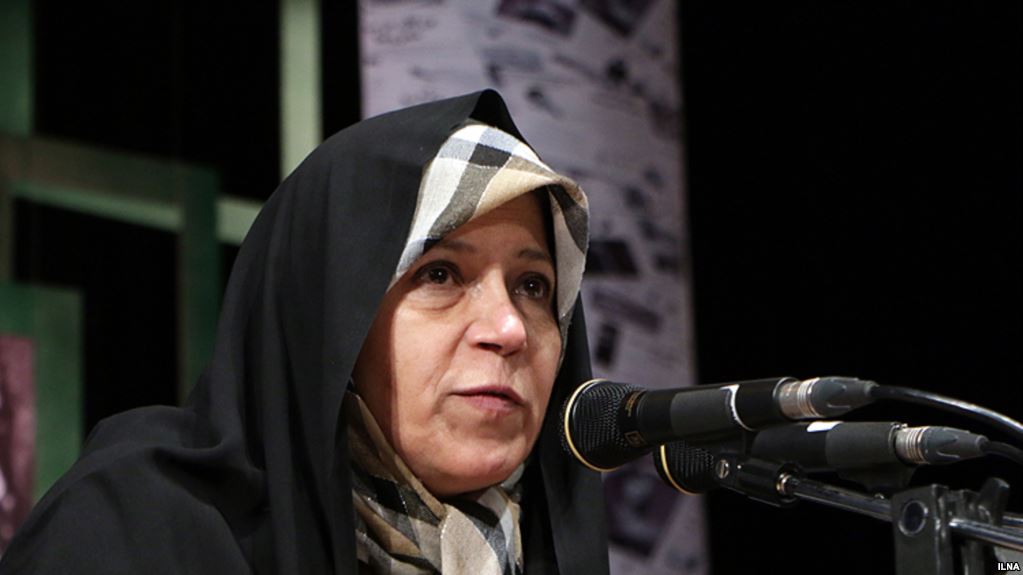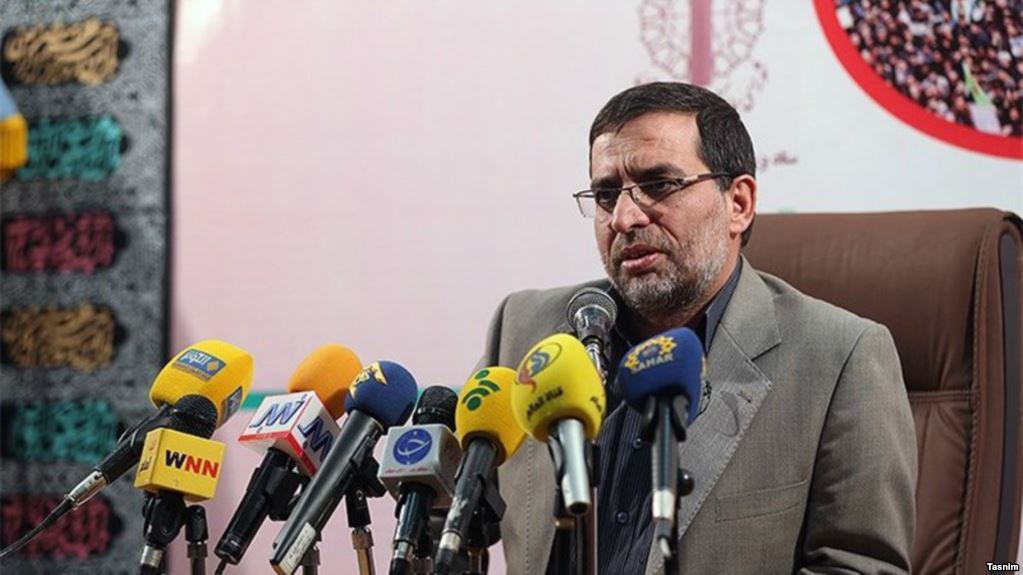![]()
How Much Longer Resources Should be Allocated to Proponents and Pointless Expenses?
The editorial of Mardomsalari focuses on the money squandered and given away to those close to Iranian establishment in the annual budget.
People keep reminding Iranian government and parliament that there is not much left in the country for squandering and giving away. Natural resources, capitals, oil, forests have been excessively misspent. Therefore, the government and the parliament must be careful not to squander whatever is left, in the name of transparency, economic arrangement, and priority of justice over development.
The editorial continues: Iran is now in the worst and most complicated historical situation. The conditions are so precarious that only wise people realize it. However, Iranian government is only focused on spending, and doesn’t care about what is gained instead.
It has been a while that non-governmental cultural entities and certain people – close to Iranian establishment – use the government’s treasury, credits and financial aids without being accountable or offering a work report to the nation, government or parliament. How much longer this unacceptable condition must go on?
The editorial adds: in passing the budget bill, the priority should be given to Iran’s economy and Iranian people, and not interests of certain people. Squandering the government’s resources must be stopped. Prudence, saving, and creating employment capacity for the youths must be focused on.
During past 40 years after the revolution, the editorialist concludes, the social gap has been widening and rent seekers are still in power. Some statesmen are not tough enough on squandering the public properties on personal uses, propaganda, and on their supporters and relatives.
Mardomsalari – January 2
Iran’s Role in Talks with Taliban
The editorial of Arman Emrooz focuses on the role Iran can play in talks with Taliban, seeing it as an opportunity for Iran to gain more geopolitical weight in the region. Iran recently admitted holding talks with Taliban in Tehran.
Iran has always been an influential actor in the regional developments, and Afghanistan is one of the neighboring countries with strategic depth due to the presence of Shi’as in this country. As a result, Islamic Republic has always had a contact with all combatant, ethnic and religious groups in this country. This includes Taliban whose control over a large part of Afghanistan and its influence among people has added to its socio-political weight.
The editorial continues: during past months, Taliban has portrayed a different image of itself as a group that is ready to enter peace talks and play a role in the future of Afghanistan. Different countries such as America, Pakistan, UAE and Saudi Arabia are after having relations with and impact on Taliban, because it has an enormous influence in Afghanistan and is in control of the large part of this country.
Iran, due to its geopolitical role in the region, can facilitate these talks. One of Taliban’s conditions to enter talks is foreign forces pulling out of this country. Iran is after the same thing to secure its eastern border; as a result of this political strategic closeness, Iran can help establish a stronger bridge between Taliban and Afghanistan’s government. Iran can use this opportunity to create power and geopolitical balance against other regional and transregional actors including America.
The editorial concludes: this is an opportunity for Iran to increase its geopolitical weight and secure its own eastern borders with regard to drug transit and illegal trafficking which can have an impact on the region and beyond.
Arman Emrooz – January 1
Lack of Proportion between New Annual Budget and Economic War
The editorial of Arman Emrooz focuses on the 2018-2019 Budget Bill in relation to economic ordeals in Iran.
It seems that those organizations that express their dissatisfaction with the budget for the new year have basically forgotten about the economic war and do not realize what the US sanctions are doing. Meanwhile, some think that if Iran disconnects its ties with foreign countries, everything will be perfect. As such, some officials are after putting a show of being revolutionary, destroying the JCPOA, not ratifying FATF, etc., while seeming to ignore the harsh realities.
The editorial continues: they don’t consider that the government must have revenues to be able to spend. It seems that the Budget and Planning Organization isn’t aware of the economic war either, which is why this year’s budget is more inflated than the last one. Meanwhile, the government and officials keep promising improvements in conditions.
Under the conditions of economic war, no such promises must be made, emphasizes the editorial, as it creates more expectations. When we talk of economic war, it means less income, more problems. In actuality, the pressure has increased on Iran, the limitations have escalated, and many European countries have disconnected ties with Iran. And what is certain is that the United States will have more severe confrontation with Iran.
On the other hand, China and Russia have acknowledged that if Iran doesn’t ratify FATF, they cannot have banking relations with Iran. That is why the budget must have been drafted with more economic austerity.
The editorial concludes: Iranian officials must prepare themselves and people for the economic war, instead of raising the expectation within the society.
Arman Emrooz – December 31
Nightmare of 12th Government
The editorial of Mostaghel newspaper focuses on all problems created by Hassan Rouhani’s government, turning it into a nightmare.
It seems that Rouhani’s government – 12th government – can no longer attribute the problems in Iranian society to Ahmadinejad’s government to escape accountability. People participate in election to improve the conditions compared to the previous term, and 12th government had certainly enough time to overcome the problems and create hope in the society.
The editorial continues: if Ahmadinejad’s government was going to be blamed for all problems, it would be better for the 12th government to withdraw from 2017 election since it was aware of all the problems created by 9th and 10th governments. The current level of unemployment, inflation, and recession is so high that it cannot be even compared with the previous government. Inability in controlling the currency, gold coin, and automobile market is much more than before.
There has been no improvement in environmental issues. There are still astronomical salaries within the government organizations, despite promises to fight them. Unbridled inflation in the housing market cannot be seen as outcome of policies of Ahmadinejad’s government. Neither can 9th and 10th governments be blamed for attributing all domestic problems to the JCPOA or the escalation of tension with Gulf countries.
The editorial concludes: it is time for Rouhani’s government to be accountable for its own policies and not hide behind the former government to escape responsibility. Rouhani’s government should stop using 9th and 10th governments as justification for its failures to overcome problems. As a matter of fact, the 12th government itself has now turned into a nightmare which can be used in upcoming election to gain people’s votes.
Mostaghel – December 30
![]()
More Budget for Religious and Propaganda Institutions; Less Money for Environment and Health Ministry

In Iran’s budget bill for the next fiscal (March 2019-20), religious and propaganda institutions of the establishment and IRIB (The Islamic Republic of Iran Broadcasting) receive more than five trillion tomans (5300 million tomans) altogether– which is nearly 13 times more than the budget dedicated to “environmental issues.” The total budget for Iran’s environmental issues, including air pollution control is 403 billion tomans.
By dedicating a 5-trillion-toman budget to religious and propaganda institutions (besides IRIB), Iran’s establishment actually allocates nearly 66 thousand tomans for each person to its religious and propaganda institutions. Meanwhile, the environment budget for each Iranian is less than five thousand tomans.
To make another comparison, Iran’s Welfare Organization which was established for providing supportive services and fulfilling the most basic needs of low-income families, receives a budget of 4 thousand billion tomans; namely, less than 50 thousand tomans for each Iranian.
There are some religious and propaganda institutions whose major duty is specifically promoting the political, cultural and religious ideas of the establishment’s leaders. The Service Center for Religious Seminaries is one of them. This institution receives the largest share of the budget, namely, more than one trillion tomans. More than one third of this budget is spent for clerics’ unemployment insurance.
In the long list of Iran’s religious and propaganda institutions, an enormous budget is dedicated to institutions that have specific and limited religious or propaganda duties. For instance, Central Headquarters for Rahiane Noor– whose major duty is promoting official narratives of war and organizing trips to war zones for students—receives 25 billion tomans as its budget.
Several institutions whose duty is to take care of Ayatollah Rouhollah Khomeini’s mausoleum or preserve his works receive a budget of 73 billion tomans.
Meanwhile, while 40 million people are under poverty line in Iran, the budget of health ministry is reduced.
A member of the Iranian parliament’s social committee Rasoul Khezri said as 40 million people live under poverty line, “reducing the health ministry’s budget is not logical at all.” According to Khezri, medical insurance coverage is a major service which should be provided for people, so its budget must not be reduced by the government.
BBC Persian
Asre Etebar
Students Protest Bus Crash, Death of Classmates

In the deadly accident of a bus at the Islamic Azad University yesterday, 10 students were killed and 28 injured. The bus was overturned on the university campus located on the foothills of the Alborz mountains in Tehran. The bus was overturned due to brake failure on the university campus located on the foothills of the Alborz mountains in Tehran on December 26. According to Tehran traffic police, the bus had been among worn-out vehicles since 2012.
Hundreds of university students have held rallies protesting against “inefficient authorities”. Students at the Science and Research branch of Islamic Azad University (IAU) in Tehran cancelled their classes and staged rallies in protest against the deadly bus accident at their campus. The student protesters chanted slogans against “inefficient” university authorities and demanded their resignation and trial. Currently, Mohammad Mehdi Tehranchi is the dean of IAU and Ali Akbar Velayati is the head of its board of trustees.
Following severe criticism against Velayati, 5 managers and deputies of the Science and Research branch of IAU were dismissed. However, IAU students have said the university officials “ducked their responsibility” by those dismissals, adding the “resignation of the highest authority of the university” is the “least price” to be paid in this regard.
On Monday protest gatherings were held in front of Tehran University in support of Azad University students, in which protesters chanted slogans against inefficient officials. These gatherings coincided with protests of December 2017 last year, in which many people took part in extensive protests in tens of cities of Iran against financial corruption and high prices.
Azad University, with 535 units and branches in Iran and several other countries and with 1.6 million students, is one of the “super rich” scientific institutes because of the high tuitions it receives from the students. Many see it as an investment enterprise where students’ money is pocketed, but not much is spent on students’ safety and comfort.
Azad University is allegedly after land grabbing, which is why it chooses distant and hard-to-reach locations including the mountainous areas for establishing its branches. Following the bus crash, a journalist wrote in his twitter, “All these years, Azad University has been grabbing land; they have immediately built a couple of classes in the mountains or deserts, so that no one can take the lands back from them; meanwhile students have been used as a ploy and a financial source.”
Zeitoon
Hamdeli
Khomeini’s Grandson: No Guarantee We Will Remain in Power

As Iran gets closer to the 40th anniversary of Islamic Revolution, children of founding fathers of the revolution seem to be more and more disappointed and disillusioned with the current affairs in Iran.
Hassan Khomeini, grandson of Ruhollah Khomeini, the founder of Islamic Revolution in Iran, urged on people’s approval as foundation of any society, stressing that there is no guarantee that Iranian establishment will continue in Iran.
In his remarks criticizing the Iranian establishment, Hassan Khomeini said that continuous fragmentation in the society and disseminating resentment, hatred and hypocrisy among people are all signs of failure of the government.
Prior to that, Faezeh Hashemi, daughter of late Hashemi Rafsanjani, had said that in her opinion, the establishment of Islamic Republic has already collapsed from within; if it hasn’t happened from without, it is due to fear and intimidation created among people. People are scared of what might come after the Islamic Republic; that is why the facade of the Iranian establishment has not collapsed yet, underscored Faezeh Hashemi. Anywhere you look, you can see only failures, added the daughter of one of the founding fathers of Iranian Revolution.
Faezeh Hashemi urged on heavy sentences handed to activists in Iran, adding that currently people from all civil groups are in jail: teachers, truck drivers, women activists, environmentalists, students, economic actors, and different other people. She expressed her doubts as to whether people should vote in the next presidential election, emphasizing that elections in Iran have failed to produce any practical results.
Meanwhile, Mohammad Reza Tajik, political advisor of former president Mohammad Khatami, in an interview with Etemaad online, compared Iran to Titanic, which is trapped in storm and whirlpool. He added that currently Iran is in bad conditions as no individual or entity is in its right place or doing its right job.
It must be mentioned that later Fatemeh Hashemi, another daughter of late Hashemi Rafsanjani, talked of her father being murdered. She added two months before Rafsanjani’s death, she was informed that a number of individuals were planning to assassinate her father. She also pointed out that Rafsanjani’s case had been closed in the Supreme National Security Council. Akbar Hashemi Rafsanjani, a founding father of the Iranian revolution, was found dead in a pool on January 8, 2017.
Parsine
Radio Farda
Khamenei Calls for Israel’s Collapse, while IRGC Warns of Crises in Iran Next Year

Iran’s supreme leader Ali Khamenei claimed that Palestinian government will be formed in Tel Aviv in the future, urging on downfall of Israel. He emphasized that pressures will not stop Islamic Republic’s support for “resistance groups”. Israel has announced readiness to attack Iran, if its existence threatened.
Khamenei, in his meeting with Ziyad al Nakhaleh, leader of Palestinian Islamic Jihad, urged on victory of Palestinian people and Islamic Republic’s “religious duty” to help and support Palestinians.
Al Nakhaleh urged that if any war with Israel takes place, Tel Aviv and other cities and towns of Israel will be within reach of “the Resistance’s missiles”. Islamic Jihad has been labelled a terrorist organization by the US, EU, Israel and other countries and has been backed by Iran.
Khamenei’s remarks about Israel’s downfall were made a few days after Iranian FM Mohammad Javad Zarif had claimed in interview with a French magazine that Iran has never called for destruction of Israel – remarks that are in obvious contradiction with Islamic Republic’s public foreign policy during past 40 years. Zarif’s words didn’t sit well with Iranian hardliners who accused Zarif with distorting the words of Khomeini, the founder of Islamic Republic.
In popular protests, Iranian people have kept expressing their rage at Iranian establishment’s foreign policy, including support for Palestine and Syria and enmity with Israel.
Khamenei’s promise of victory for Palestinians over Israel comes at a time when he and IRGC’s advisors are concerned over more turmoil and crisis in Iran in the upcoming year.
An advisor to IRGC chief commander warned about crises in Iran next year, which will probably triggered by upcoming parliamentary election and union, protests in the country. Ali Mohammad Naeini, referring to parliament election, said: “Elections act like catalyst preparing the grounds for civil disobedience.” He added that on the other hand, the enemies “have focused on economic pressures” over trade unions and workers.
Prior to that, Khamenei himself had warned against “America’s possible plot” against the Iranian establishment in the upcoming year. His remarks were made at a time when the increase in dollar’s price has resulted in soaring prices for essential goods in Iran; the poverty line in Tehran has had 11% increase; assemblies of workers, teachers, and retirees in recent months have triggered serious protests in Iran.
Radio Farda
Tasnim
